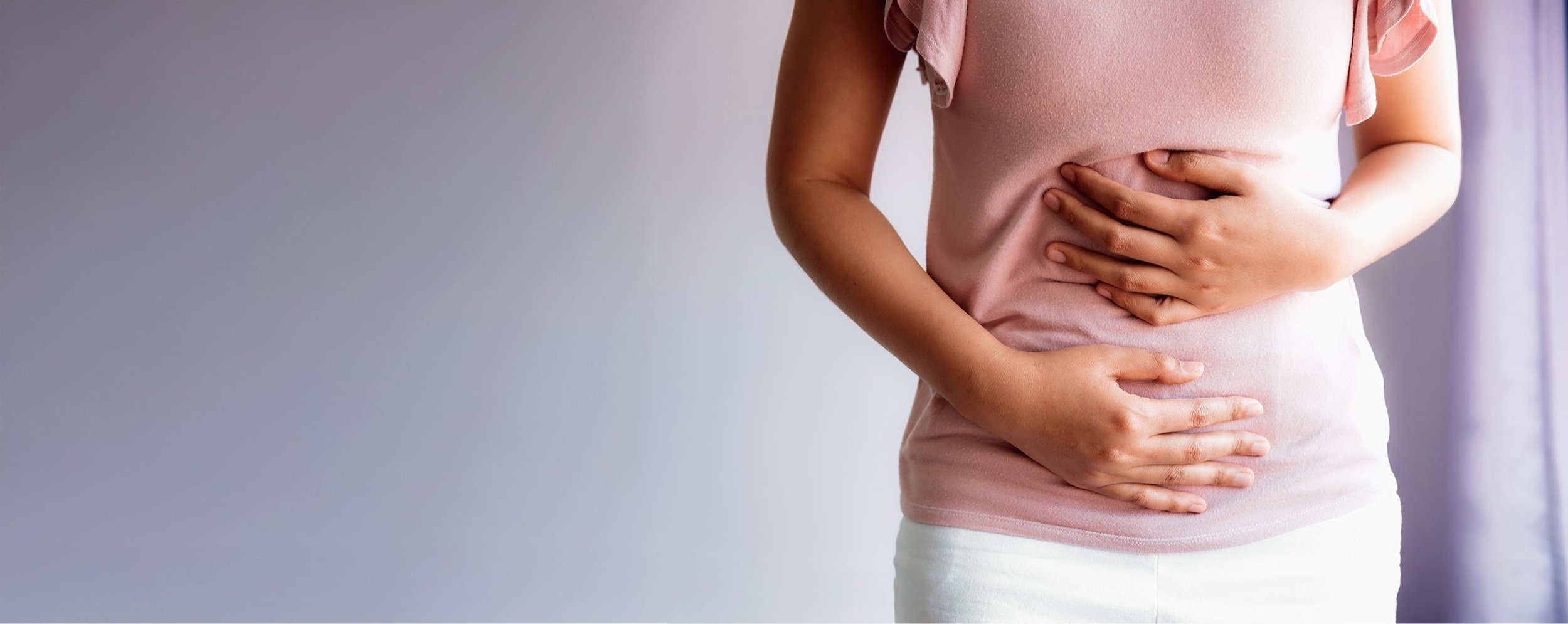Endometriosis
Endometriosis is a chronic, often painful condition where tissue similar to the lining of the uterus (endometrium) grows outside the uterus. It typically affects the ovaries, fallopian tubes, pelvic ligaments, bladder, bowel, or other organs. This tissue responds to hormonal changes during the menstrual cycle, which can lead to inflammation, scarring, and pain.
Who Gets Endometriosis?
Endometriosis affects up to 1 in 7 people assigned female at birth by the age of 44. It can occur in teenagers and adults and is most commonly diagnosed during reproductive years. While the exact cause is unknown, risk factors include:
Family history or genetic predisposition
Early onset of menstruation
Short menstrual cycles
Heavy or prolonged periods
Common Symptoms of Endometriosis
Painful periods (dysmenorrhoea)
Pelvic pain at other times in the cycle
Pain during or after sex
Pain with bowel movements or urination (especially during periods)
Infertility or difficulty conceiving
Chronic fatigue
Bloating or gastrointestinal symptoms (often referred to as “endo belly”)
Symptoms can vary significantly, and some people with endometriosis may have no symptoms at all.
Endometriosis can also significantly impact day-to-day life. Many individuals report missing work or school, experiencing social withdrawal, and facing emotional challenges like anxiety or depression due to ongoing symptoms. Recognising and addressing these impacts is a key part of holistic care.
How is Endometriosis Diagnosed?
Diagnosing endometriosis often begins with a detailed medical history and physical examination. Imaging techniques such as transvaginal ultrasound or MRI may suggest the presence of endometriosis, particularly deep infiltrating disease. However, the only definitive diagnosis is made through a laparoscopy – a minimally invasive surgical procedure that allows direct visualisation and biopsy of the lesions.
Importantly, treatment can begin without surgical confirmation. Many patients benefit from a trial of hormonal therapies or other non-surgical approaches before a laparoscopy is recommended. This helps reduce the delay in care and ensures symptom relief can begin as early as possible.
Treatment Options for Endometriosis
Treatment is tailored to individual needs based on symptom severity, age, fertility goals, and response to previous treatments.
1. Lifestyle and Supportive Measures:
Dietary modifications and anti-inflammatory nutrition
Regular exercise and movement
Pelvic physiotherapy
Acupuncture and complementary therapies
Psychological support and counselling
2. Medical Management:
Hormonal therapies:
Oral contraceptive pills
Progestins (e.g., Visanne)
GnRH analogues (e.g., Ryeqo, Zoladex)
Hormonal IUDs (e.g., Mirena)
NSAIDs for pain relief
3. Surgical Management:
Laparoscopic excision or ablation of endometriosis lesions
Advanced nerve-sparing pelvic surgery for severe or deeply infiltrating disease
Hysterectomy in select cases (usually not first-line)
Minimally invasive techniques such as laparoscopy and robotic-assisted surgery are the gold standard for treating endometriosis. These approaches allow for smaller incisions, less pain, quicker recovery, and improved outcomes. If you're considering surgery, ask your specialist about access to laparoscopic and robotic technologies to ensure you're receiving the most effective care.
Endometriosis and Fertility
Endometriosis is a leading cause of infertility. It can affect egg quality, interfere with ovulation, or cause structural issues in the pelvis. However, many people with endometriosis can still conceive naturally or with assistance. Treatment options include:
Optimisation of timing and ovulation
Surgical management to improve fertility outcomes
Assisted reproductive technologies (ART) such as IVF
Dr Dean Conrad works with City Fertility to provide access to ART and offers a comprehensive, holistic approach to fertility care. This includes identifying and treating underlying causes of infertility, aiming for natural conception where possible, and supporting individuals and couples through every stage of the fertility journey.
Living with Endometriosis
Endometriosis can have a significant emotional and physical toll. It’s essential to have access to a supportive healthcare team that listens, validates your symptoms, and works with you to manage them effectively.
A multidisciplinary approach is often the most effective way to manage endometriosis. This may include working with:
Pelvic floor physiotherapists
Dietitians and nutritionists
Psychologists or counsellors
Fertility specialists
Pain specialists
Chinese herbal medicine practitioners
Naturopaths
Colorectal or urology surgeons when required
At Dr Dean Conrad’s practice, we believe in empowering you with knowledge, offering compassionate care, and exploring all treatment options. Whether you’re at the beginning of your journey or seeking a second opinion, we’re here to help.
Frequently Asked Questions (FAQs) about Endometriosis
Can endometriosis be cured?
There is currently no cure, but symptoms can be effectively managed with medical and surgical treatment.
Do I need surgery to know if I have endometriosis?
While laparoscopy is the only way to confirm endometriosis definitively, many people begin treatment based on symptoms and imaging alone.
Does endometriosis always cause infertility?
No. Many individuals with endometriosis conceive naturally, but it can make conception more difficult. Early treatment and a supportive care team are key.
Is endometriosis genetic?
There does appear to be a genetic link. If a close family member has endometriosis, your risk may be higher.
What should I do if I think I have endometriosis?
Book an appointment with a gynaecologist who has experience in diagnosing and managing endometriosis. Early intervention can help reduce symptoms and preserve fertility.
Is endometriosis the same as adenomyosis?
No, endometriosis and adenomyosis are related but distinct conditions. Endometriosis involves tissue growing outside the uterus, while adenomyosis involves similar tissue growing within the uterine wall. See Adenomyosis for more information.
Resources and Support
Living with endometriosis can be challenging, but you're not alone. There are many trusted organisations and resources available to support you:
You’ll also find regular blog posts and articles on our website offering tips, research updates, and personal stories to help you stay informed and empowered.
Related Services
Laparoscopic Surgery
Pelvic Pain
Fertility Care
Adenomyosis

Ready to Take the Next Step?
If you’re experiencing pelvic pain, painful periods, or other symptoms of endometriosis, don’t wait. Book a consultation with Dr Dean Conrad to explore your options and find the right care for your journey.

